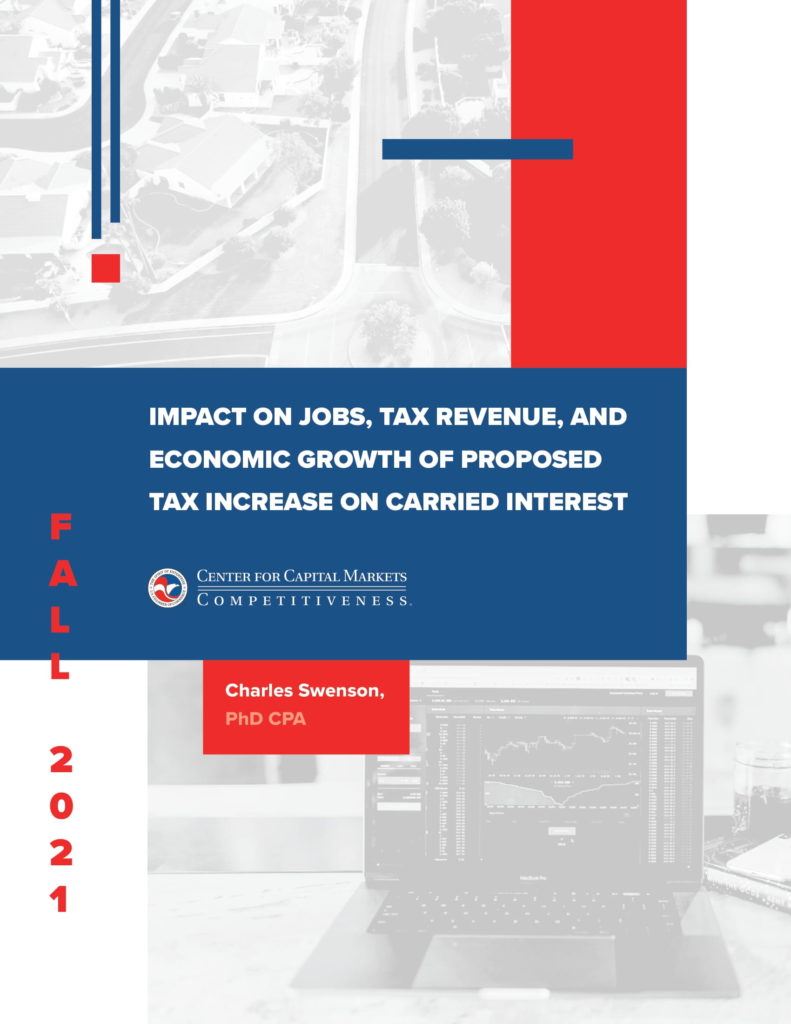The three main industries potentially subject to increased taxes on carried interest capital gains are private equity (PE), venture capital (VC), and real estate partnerships. These firms and their portfolio companies account for over 25 million American jobs and provide annual estimated combined federal, state, and local tax revenues of over $493 billion.
This study’s main findings, related to increased taxes on carried interest capital gains, are as follows:
• Applying standard economic theory, this tax law change would result in a reduced incentive for partners to stay in the industry, as well as reduced incentives to invest in longer-term and riskier projects, thus reducing overall investments and reducing rates of return on projects undertaken. Additionally, many companies that would normally seek PE and VC investments may be unable to find financing and fail (or downsize).
• Job losses will result. Applying standard economic theory, estimated potential long-run losses could be up to 4.9 million jobs across the United States.
• Net tax collections will decline. Applying standard economic theory, estimated potential combined federal, state, and local governments’ annual net revenues losses could be up to $96 billion (revenues used to fund other programs) in the long run.
• Investors will lose money. In particular, pension funds may lose up to $3 billion annually (which would be lost to pension fund retirees, and may force state and local governments to make up such shortfalls).


